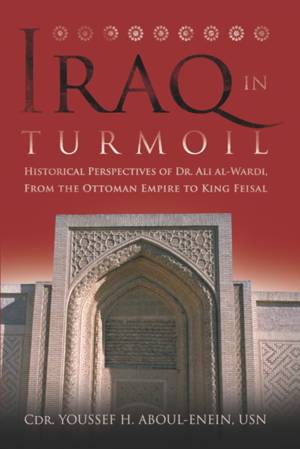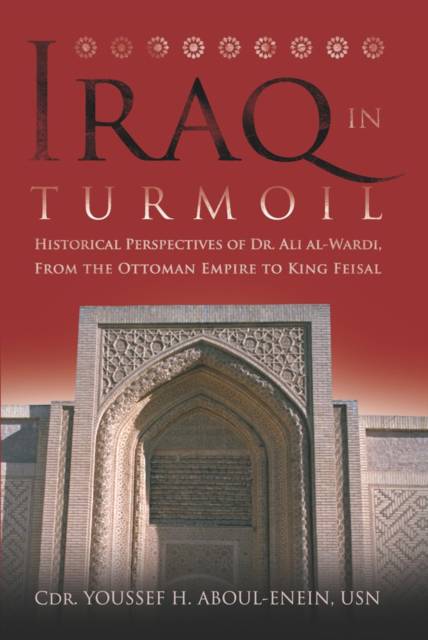
- Retrait gratuit dans votre magasin Club
- 7.000.000 titres dans notre catalogue
- Payer en toute sécurité
- Toujours un magasin près de chez vous
- Retrait gratuit dans votre magasin Club
- 7.000.0000 titres dans notre catalogue
- Payer en toute sécurité
- Toujours un magasin près de chez vous
Iraq in Turmoil
Historical Perspectives of Dr. Ali Al-Wardi, from the Ottoman Empire to King Feisal
Youssef Aboul-Enein
Livre relié | Anglais
32,95 €
+ 65 points
Description
Naval Institute Press and the United States Army Journal, Armor is pleased to offer a unique collection of essays highlighting Iraq's social, political and military history from a purely Iraqi perspective. Dr. Ali al-Wardi (1913-1995) attended the American University of Beirut in 1943 and then traveled to the United States to attain his Masters and Doctorate degrees in Sociology at the University of Texas in 1948 and 1950 respectively. He would return to Iraq and spend a career teaching, however his main legacy is a multi-volume work in Arabic that began to be published in late 1951 and ended in the early 1970s with his eighth book. It is a two decade work that highlights the history of Iraq from the arrival of the Ottomans to the monarchy of King Feisal I in 1925. Wardi's volumes are read by a wide variety of Iraqi society, and this volume is an introduction to this pivotal Arabic work to English readers. It brings alive how the Ottomans, British and Safavid Persians dealt with sectarianism in Iraq and the battles fought over key areas of Iraq. It is required reading for those with an interest in or who are deploying to Iraq. Wardi's work also discusses the dynamics of the 1920 Revolt, a year long insurgency against the British that was only satisified when London engineered a political solution to its advantage. That solution became the imposition of a monarchy under King Feisal of Iraq, who was not Iraqi. The monarchy would topple in 1958 and see the rise of Baathism
Spécifications
Parties prenantes
- Auteur(s) :
- Editeur:
Contenu
- Nombre de pages :
- 224
- Langue:
- Anglais
Caractéristiques
- EAN:
- 9781612510774
- Date de parution :
- 15-04-12
- Format:
- Livre relié
- Format numérique:
- Genaaid
- Dimensions :
- 155 mm x 231 mm
- Poids :
- 458 g

Les avis
Nous publions uniquement les avis qui respectent les conditions requises. Consultez nos conditions pour les avis.






